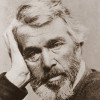“ The majority of mankind is lazy-minded, incurious, absorbed in vanities, and tepid in emotion, and is therefore incapable of either much doubt or much faith; and when the ordinary man calls himself a sceptic or an unbeliever, that is ordinarily a simple pose, cloaking a disinclination to think anything out to a conclusion. ”
Blaise Pascal, Pensées (1670). copy citation
| Author | Blaise Pascal |
|---|---|
| Source | Pensées |
| Topic | vanity faith |
| Date | 1670 |
| Language | English |
| Reference | |
| Note | Translated by W. F. Trotter |
| Weblink | http://www.gutenberg.org/files/18269/18269-h/18269-h.htm |
Context
“Pascal is a man of the world among ascetics, and an ascetic among men of the world; he had the knowledge of worldliness and the passion of asceticism, and in him the two are fused into an individual whole. The majority of mankind is lazy-minded, incurious, absorbed in vanities, and tepid in emotion, and is therefore incapable of either much doubt or much faith; and when the ordinary man calls himself a sceptic or an unbeliever, that is ordinarily a simple pose, cloaking a disinclination to think anything out to a conclusion. Pascal's disillusioned analysis of human bondage is sometimes interpreted to mean that Pascal was really and finally an unbeliever, who, in his despair, was incapable of enduring reality and enjoying the heroic satisfaction of the free man's worship of nothing.”
source



